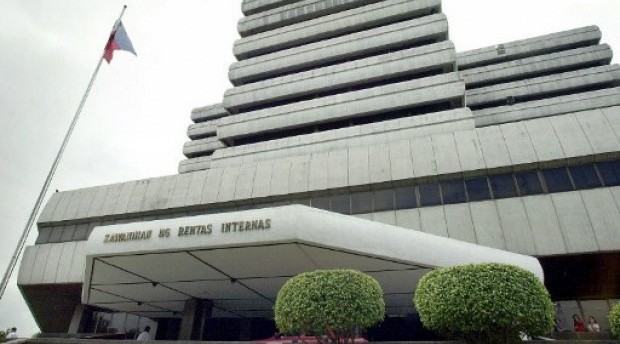
The head office of the Bureau of Internal Revenue in Quezon City. File photo from AFP
After receiving flak for an alleged erroneous interpretation of tax rules, the Bureau of Internal Revenue (BIR) has stopped the implementation of a regulation which would have jacked up the income taxes paid by private schools by 150 percent.
Finance Secretary Carlos Dominguez III and Internal Revenue Commissioner Caesar Dulay on Wednesday issued Revenue Regulations No. 14-2021, which suspended certain provisions of Revenue Regulations No. 5-2021 issued in April.
The new regulation was meant “to ease the burden of taxation among proprietary educational institutions, especially during this time of COVID-19 pandemic.” It also took into account the bills in Congress seeking to amend the Tax Code and aimed at clarifying income taxation of private schools.
Added burden
RR 14-2021 was dated July 26 but signed by Dominguez on July 27. A Department of Finance (DOF) official said copies of the new regulation were distributed to private schools, school associations, tax lawyers, lawmakers and to the media on Wednesday.
Specifically, RR 14-2021 scrapped the limitation imposed by RR 5-2021 when it provided the income-tax exemption and the preferential income-tax rate only to nonprofit and nonstock educational institutions.
The Corporate Recovery and Tax Incentives for Enterprises (CREATE) law signed by President Duterte in March further reduced this preferential tax rate to 1 percent from 10 percent previously.
Profit-oriented schools with stockholders would have been slapped a higher tax of 25 percent.
The Coordinating Council of Private Educational Associations of the Philippines (Cocopea) had opposed the measure, saying it would result in additional costs not only for the schools but also for parents and students.
Cocopea and the Philippine Association of College and Universities, along with 31 private schools, petitioned the Court of Tax Appeals in June to stop the BIR from increasing their corporate income tax by 150 percent, saying it would violate both the Tax Code and the Constitution.
Cocopea did not immediately respond to the Inquirer’s request for comment on the BIR’s latest regulation.
Remedial legislation
The BIR earlier said it based RR 5-2021 on Supreme Court rulings “in a number of landmark cases” under which educational institutions needed to be classified as nonprofit to avail of preferential tax rates.
Dominguez had also argued that since the CREATE law did not substantially amend Section 27(B) of the Tax Code, except for the provisional rate, the BIR cannot provide a definition other than what had been provided by the high court.
The DOF and the BIR had expressed openness to amend the Tax Code to address this problem.
Albay Rep. Joey Salceda, the House committee on ways and means chair, last week said the lower house was expected to immediately pass remedial legislation to expand the definition of proprietary educational institutions in the Tax Code.
The consolidated House bill which Salceda said the ways and means committee already approved in principle defined “proprietary” to include “any private school established as a stock for profit corporation, maintained and administered by private individuals or groups with an issued permit to operate from the Department of Education, or the Commission on Higher Education, or the Technical Education and Skills Development Authority.”
The bill will also allow these proprietary educational institutions to avail of the preferential tax rate being enjoyed by schools since taxable year 2012.
“No tax credit or tax refund shall be granted nor shall penalties be imposed resulting from availment of the preferential rate … for taxable year 2012 to taxable year 2021,” the pending bill read.
Salceda said the DOF and the BIR assisted in the drafting of this bill.